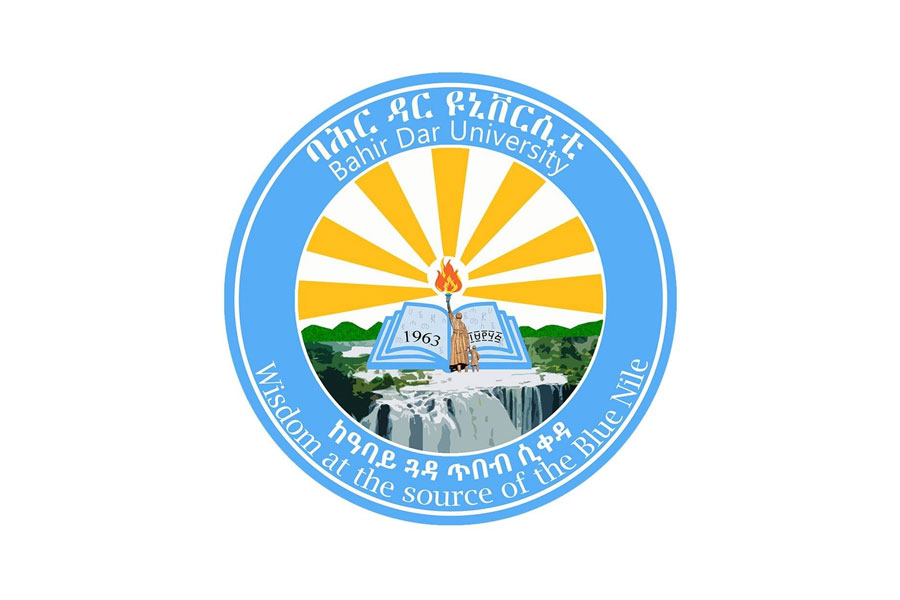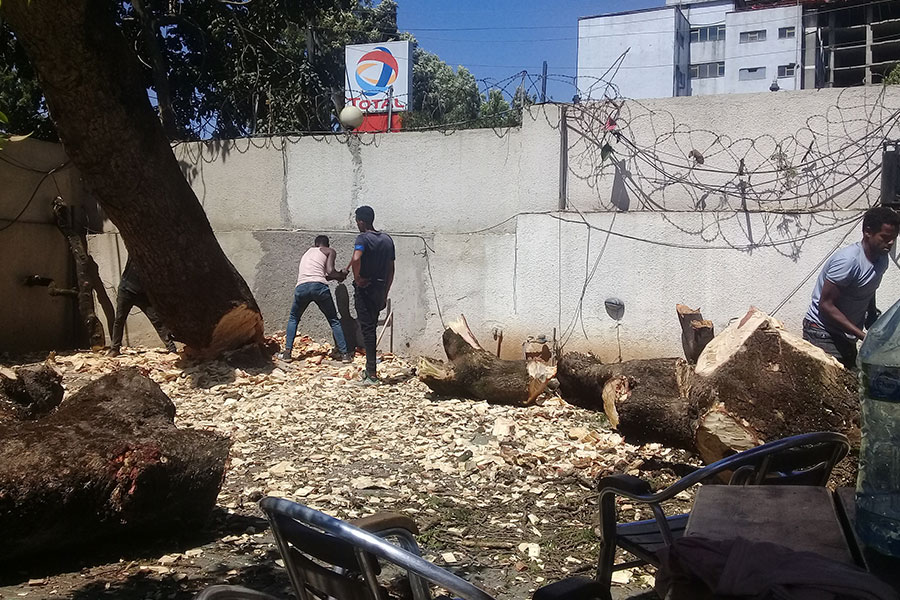
View From Arada | Oct 09,2021
Nov 25 , 2023
By Desalegn Zewdie
In a string of recent workplace incidents, the absence of adequate first aid response has emerged as an urgent issue, calling for more comprehensive training and better-equipped facilities. These events, which include a fall in a bank, a choking incident at a restaurant, and a construction accident, expose a critical gap in emergency preparedness in the workplace, pointing to a broader societal issue that transcends mere compliance with health and safety norms.
Like many emerging economies, Ethiopia is challenged by the need to balance rapid economic growth with the well-being and safety of its workforce. The recent episodes serve as a reminder that workplace safety, particularly the provision of first aid, is not just a regulatory requirement but a fundamental aspect of employee welfare and operational efficiency. The labour law, which lays out the duties of employers and employees, focusing on health and safety compliance, is silent on the specifics of first aid training and facilities. This omission is critical given the diverse nature of the Ethiopian workforce, which spans a broad spectrum from traditional agriculture to modern manufacturing and services.
At the heart of the issue is the perceived notion of first aid as a luxury rather than a necessity. This mindset often results in employers lacking to spend on first aid training and facilities, a short-sighted approach that overlooks the long-term benefits of a safe and prepared workplace. Adequate first aid provision is a moral imperative and a strategic investment. It has tangible benefits, including reducing workplace accidents, minimising absenteeism, and lowering the potential for costly litigation and compensation claims.
The incidents reported – a customer's injury in a bank, a diner's near-fatal choking in a restaurant, and a construction worker's fall – are manifestations of a widespread issue in the growing economy. These are not isolated events but indicators of a systemic problem that requires a multi-faceted solution.
Ethiopia's approach to addressing this gap needs to be both comprehensive and collaborative. The involvement of key ministries, including Health, Labour & Skills, Trade, and Construction, alongside mayor offices, is crucial in establishing clear standards and regulations for first aid in the workplace. This would include developing and implementing minimum requirements for first aid training, equipment, and facilities. Another step towards improving the situation is mandating first aid training for all employees and ensuring periodic refresher courses. Such a policy would not only elevate the general level of emergency preparedness but also instil a culture of safety and responsibility within the workforce.
Creating comprehensive emergency response plans for workplaces, with a designated number of first aid responders trained to handle more complex situations, is essential. These plans should be tailored to each workplace's specific needs and risks, ensuring a quick and effective response to any emergency.
In addition to regulatory measures, raising awareness about the importance of first aid is vital. Multi-modal campaigns can significantly educate employers and employees about the benefits of first aid readiness. Continuous evaluation and adjustment of policies and practices will also be necessary to ensure they remain effective and relevant.
The Ethiopian Red Cross has been a beacon in this regard, offering community first-aid courses that provide a foundation for such training. However, the lack of clear policies and guidelines at the national level impedes widespread implementation and integration into workplace practices.
Ethiopia's journey towards a more resilient and prepared workforce is not just a matter of regulatory compliance. It should be a reflection of its commitment to human dignity and the well-being of its people. The recent incidents should serve as a wake-up call, bringing to attention the urgent need for action in this crucial area. By prioritising first aid training and facilities, Ethiopia can safeguard its most valuable asset – its workforce – and consolidate the foundations of its growing economy.
PUBLISHED ON
Nov 25,2023 [ VOL
24 , NO
1230]


View From Arada | Oct 09,2021

Radar | Oct 03,2020

Commentaries | Dec 07,2019

Agenda | Jun 08,2024

Radar | Dec 05,2020

Fortune News | Aug 06,2022

Fortune News | Dec 21,2019

Covid-19 | Jun 07,2020

Radar | Jan 22,2022

Radar | Dec 10,2022

Photo Gallery | 178345 Views | May 06,2019

Photo Gallery | 168546 Views | Apr 26,2019

Photo Gallery | 159336 Views | Oct 06,2021

My Opinion | 137067 Views | Aug 14,2021
Commentaries | Oct 25,2025

Dec 22 , 2024 . By TIZITA SHEWAFERAW
Charged with transforming colossal state-owned enterprises into modern and competitiv...

Aug 18 , 2024 . By AKSAH ITALO
Although predictable Yonas Zerihun's job in the ride-hailing service is not immune to...

Jul 28 , 2024 . By TIZITA SHEWAFERAW
Unhabitual, perhaps too many, Samuel Gebreyohannes, 38, used to occasionally enjoy a couple of beers at breakfast. However, he recently swit...

Jul 13 , 2024 . By AKSAH ITALO
Investors who rely on tractors, trucks, and field vehicles for commuting, transporting commodities, and f...

Oct 25 , 2025
The regulatory machinery is on overdrive. In only two years, no fewer than 35 new pro...

Oct 18 , 2025
The political establishment, notably the ruling party and its top brass, has become p...

Oct 11 , 2025
Ladislas Farago, a roving Associated Press (AP) correspondent, arrived in Ethiopia in...

Oct 4 , 2025
Eyob Tekalegn (PhD) had been in the Governor's chair for only weeks when, on Septembe...

Oct 25 , 2025 . By YITBAREK GETACHEW
Officials of the Addis Abeba's Education Bureau have embarked on an ambitious experim...

Oct 26 , 2025 . By YITBAREK GETACHEW
The federal government is making a landmark shift in its investment incentive regime...

Oct 29 , 2025 . By NAHOM AYELE
The National Bank of Ethiopia (NBE) is preparing to issue a directive that will funda...

Oct 26 , 2025 . By SURAFEL MULUGETA
A community of booksellers shadowing the Ethiopian National Theatre has been jolted b...